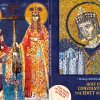Why isn’t Zoran Zivkovic better known in this country? He possesses an imaginative ingenuity and charm similar to that of, say, Paul Auster or Italo Calvino, with bits of Kafka, Borges and Beckett mixed in. His body of work, superbly translated (mainly by Alice Copple-Tosic), has even grown substantial enough that Cadmus Press is bringing out a multi-volume “Zoran Zivkovic Collection,” which already includes “Impossible Stories I,” “The Papyrus Trilogy” and “The Five Wonders of the Danube.” Certainly anyone who loves to read will love reading this Serbian fabulist’s entrancingly bookish stories and novels.
More: Washington Post
„Вашингтон пост”: Живковић поседује имагинативну проницљивост и шарм Остера или Калвина
„Вашингтон пост” је пре неколико дана донео је обиман и веома похвалан текст из пера угледног критичара Мајкла Дирде, добитника Пулицерове награде за новинарство, о чак три књиге нашег најпревођенијег писца Зорана Живковића: „Трилогија Папирус”, „Пет дунавских чуда” и „Немогуће приче I”.
Амерички издавач Кадмус прес управо је овим делима недавно отпочео веома амбициозан пројекат „Колекција Зорана Живковића” у оквиру кога ће бити објављена сабрана прозна дела нашег аутора на енглеском у чак 32 тома – 11 у тврдом повезу и 21 у меком. До краја године појавиће се и четврти том издања у тврдом повезу, „Немогуће приче II”, а током 2017. и 2018. изаћи ће преосталих 28 томова – по један у просеку на сваких 26 дана. Ово је први пут у историји српске књижевности да један наш писац добија сабрана дела код неког великог америчког издавача.
– Зашто Зоран Живковић није боље познат у САД – пита се на почетку свог приказа Мајкл Дирда. „Он поседује имагинативну проницљивост и шарм једног, рецимо, Пола Остера или Итала Калвина, уз оно што је понајбоље код Кафке, Борхеса и Бекета. Његов прозни опус, изврсно преведен на енглески, постао је уистину обиман, а да нам га представи потрудио се Кадмус прес који је уприличио пројекат „Колекција Зорана Живковића” у склопу кога су се ове јесени појавиле три књиге: „Трилогија Папирус”, „Пет дунавских чуда” и „Немогуће приче I”. Свако ко је заљубљен у читање несумњиво ће бити задивљен очаравајућим књижевним световима у причама и романима српског фабулисте.
Извор: Политика
Фото: А. Васиљевић





